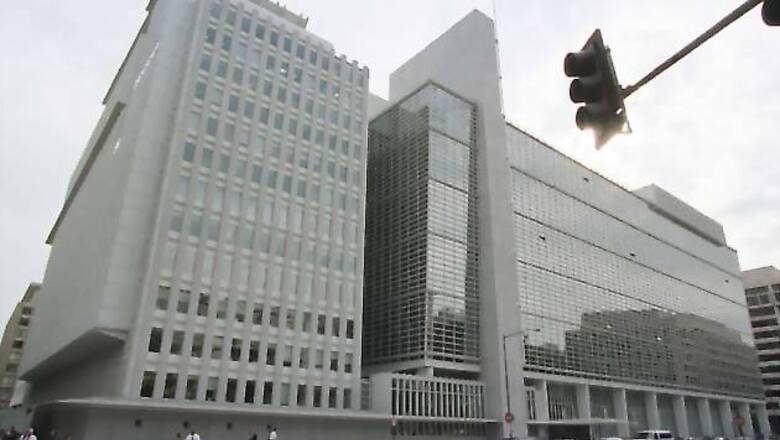
views
New Delhi: The World Bank on Wednesday cut India's growth forecast for the current fiscal to 6 per cent, from the earlier estimate of 6.9 per cent, citing corruption scandals and uncertainty in policy issues. "Real GDP growth is forecast to reach around 6 per cent in 2012-13, after 5.3 per cent growth in the fourth quarter of 2011-12 and 5.5 per cent growth in the first quarter of 2012-13," the World Bank said in its report on India Economic Update, released on Wednesday.
However, World Bank's growth forecast is quite optimistic compared to other agencies, including IMF. The multilateral funding agency has projected India to grow at 4.9 per cent in 2012, from 6.2 per cent pegged earlier. The World Bank said it expects inflation to reach as high as 8 per cent by March 2013 due to higher domestic fuel prices among other things.
The Indian economy grew at 5.5 per cent in the April-June quarter. In the previous fiscal (2011-12), growth had fallen to a nine-year low of 6.5 per cent. The data on the second quarter GDP is scheduled to be released on November 30, 2012. The Bank said the slowdown is at least partly caused by structural problems -- power shortages, partly caused by the financial difficulties facing the electricity sector, the corruption scandals that have hit the mining and telecom sectors, investor uncertainty because of pending changes in legislation (mining, taxes, land acquisition), and the tightening constraints of land and infrastructure.
However, it should be noted here that the Government has already appointed a panel under eminent tax expert
Parthasarathi Shome, which has given its report on the General Anti Avoidance Rules (GAAR) and draft report on retrospective amendments to the Income Tax Act. The committee is expected to address the issues of stable environment for tax policies. The World Bank said tighter macroeconomic policies, slow growth in the core OECD countries, and worries about another global recession also weigh on India's growth prospect.
Important signals to revive domestic growth drivers to lift sentiment more than produce instant efficiency gains could come from reforms recently announced and, more importantly, the reform of direct taxes, the implementation of the long-delayed GST, and passage of the land acquisition and mining bills, it said. It said India's FDI reform announcements and fuel price corrections were widely welcomed by investors.
The Bank also said the downside risks to medium-term growth are high because of the risks to global growth from the precarious situation in Europe. Even without a strong worsening of the global scenario, the Bank said India's external financing requirements are high, and likely to expand in the coming years.
Short-term debt (by residual maturity) stood at USD 142 billion at end-September 2011, in addition to the current account deficit of around USD 70 billion, the World Bank said, also highlighting the point that the RBI's foreign reserves reached USD 260 billion at end-March 2012.



















Comments
0 comment